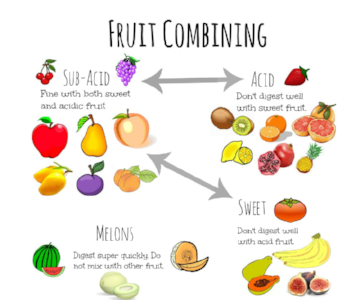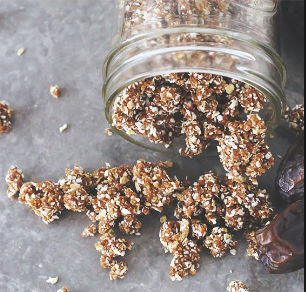Rawnola
My Favorite Green Juice
MSG
Raw Mushroom Burger
Artificial Sweeteners
There are two main problems I have with artificial sweeteners.
1. They wreak havoc on your hormones.
It's basically the equivalent to your hormones PMSing all. the. time.
"If you think about a world where there are no artificial sweeteners, when we taste something sweet, it's often a sugar. And that means when the sweet taste hits our mouth, our bodies, our brains, based on this experience can learn to anticipate that calories and sugar are going to show up. And as a result, we'll start to produce changes, physiological changes; like the release of hormones, and the activation of our metabolism so that we can deal with the arrival of those calories in that sugar. And we think that's kind of a learning process; and that helps us not only regulate how much we eat but also to keep our blood sugar in a more healthy range.
And now if you introduce an artificial sweetener, what you do is you get this very strong sweet taste in your mouth, but you don't get the consequences that normally ought to show up. No calories show up. No sugar shows up. And so your body will then adjust to that new reality by saying, wait a minute; I've tasted something sweet. I have no idea what's going to happen. I'm not going to release those hormones, or I'm not going to release as many of those hormones. And that's what we really think the confusion comes from" (source).
So now that you're hormones are totally fucked they end up phoning it in on all the important functions they're responsible for. In my case this lead to hypothyroidism - whose symptoms include a major decrease in metabolic function, fatigue, hair loss, weight gain, and dry skin. HOT!
Thankfully I was able to reverse my hypothyroidism - however it is usually diagnosed as a chronic, life-long condition. More to come on that. If you're not in the market for something similar I highly recommend staying away from anything containing this arsenic.
2. They actually actually trigger your appetite.
An article in the Yale Journal of Medicine and Biology explains this: "Sweetness decoupled from caloric content offers partial, but not complete, activation of the food reward pathways. Activation of the hedonic component may contribute to increased appetite" (source).
Basically, when you eat something that that tastes artificially sweet, your brain triggers your body to expect a high-carb food source to be coming shortly. When that food doesn't come your body is confused and your appetite increases.
Instead of seeing a drink or food as low calorie or even zero calorie, consider the foods you will eat in response to your artificially increased appetite due to ingesting the sugar substitute, that you wouldn't have eaten without ingesting it. Consequently your 0 calorie treat now has a net impact of 300-400 calories.


















